There may exist two years between the rangers from Israel and Germany during which joint excursions and face-to-face exchanges of the twinning partners were not possible – but contact has not broken off as the twinning-initiators Ilan Yeger from the Israel Nature and Parks Authority and Michael Großmann, head of the National Park Service in the Bavarian Forest, report. With the visit of six Israeli rangers to Brandenburg and Bavarian Forest National Park, they have strengthened their cooperation and cohesion in difficult times.
Around the cone of light surrounding the small group of rangers, daylight gradually disappears in the twilight. For a while, nothing but the wind can be heard in the treetops around the wilderness camp in the Bavarian Forest. Then this: “I’ve had a hard year, and I didn’t really want to be here at all. I had no more trust, not in anybody.” The group remains silent, waiting. “But I was persuaded. And now everything is different. I can trust again. Being here with you and with my colleagues in Brandenburg is the best thing that has happened to me in a long time.”
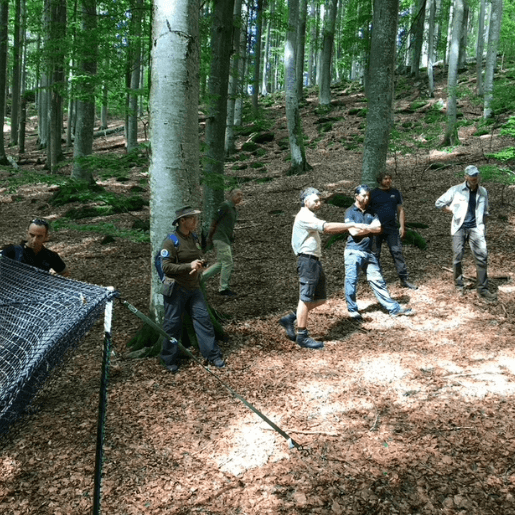
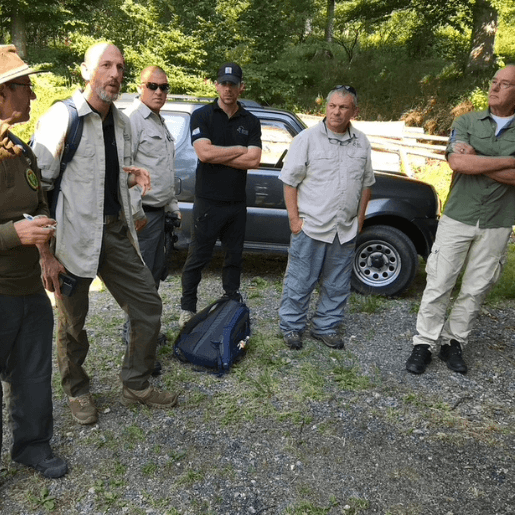
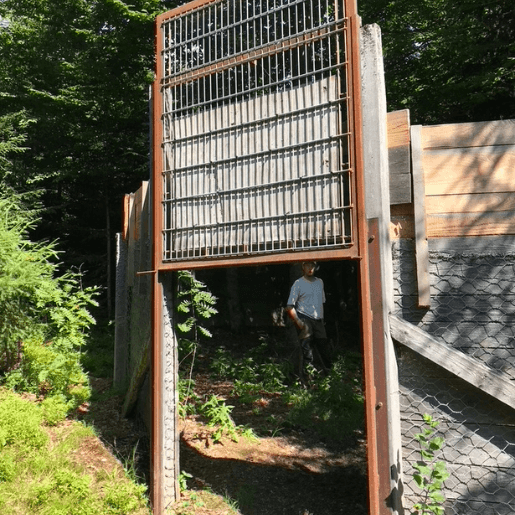
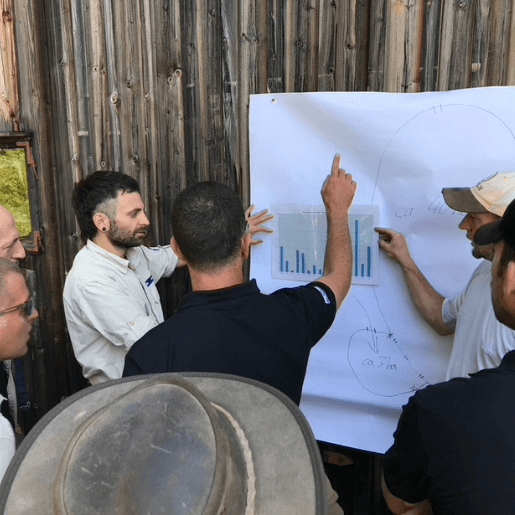
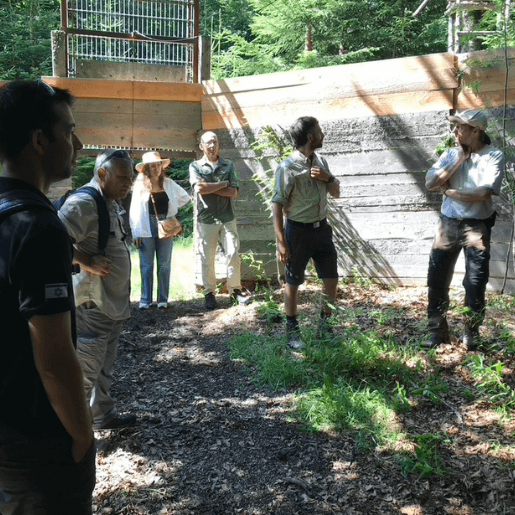
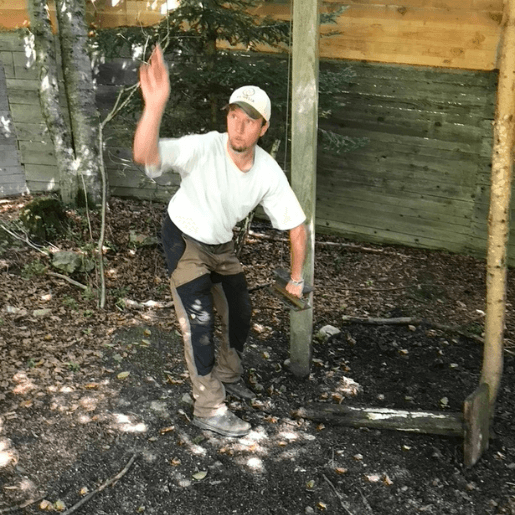
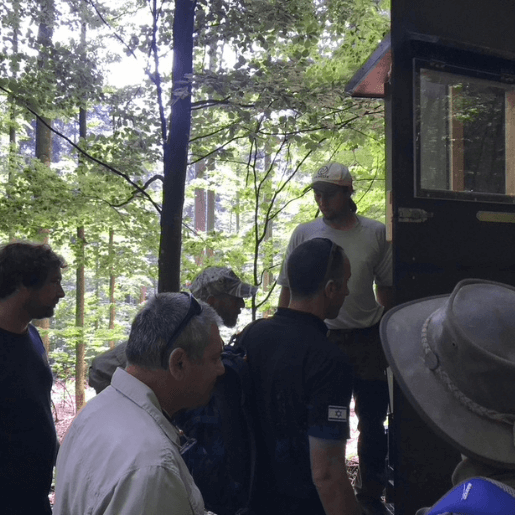
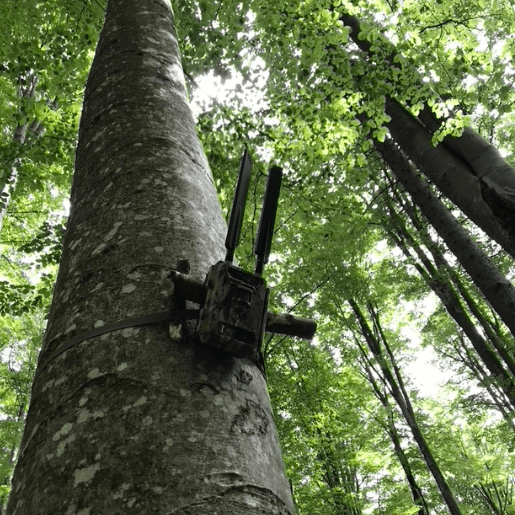
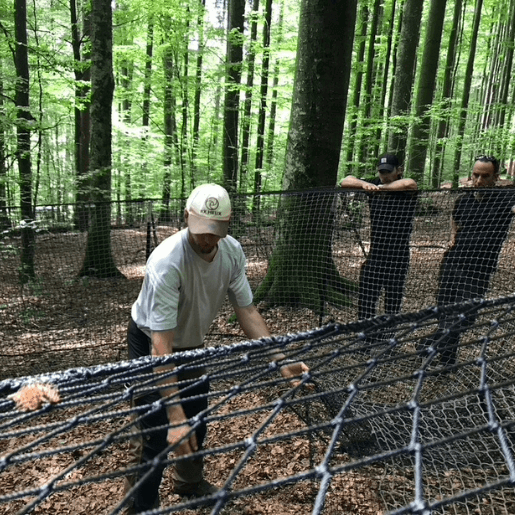
It is a conclusion of one of the rangers from Israel after a week’s visit to the twinning partner, the rangers in Germany. First with the Brandenburg Nature Guard and now with the National Park Guard in the Bavarian Forest National Park. A very personal one. But also one that fits. It underlines what many of the colleagues expressed on the evening before the farewell: The visit, the open conversations, being on the road with rangers from a country that – although almost 3,000 kilometres away at shortest distance – often deal with similar issues, sometimes with completely different ones. Learning from each other, the honest interest and exchange about challenges and experiences of everyday ranger life, where all too often there is no time and no one to talk to – for many of the rangers from Israel and Germany, this is probably one of the best things that has happened to them since the tough pandemic period.
Notepads and hearts are filling up
In the morning, the six Israeli rangers and their colleagues from Albania, Portugal, the Black Forest National Park and the Bavarian Forest National Park were out and about with national park hunter Martin Pauli at the winter deer gate and at various wild boar gates. When Pauli demonstrates how easy it is to set up the rubber net and how wild boars can be secured in it without fear or injury, many of the faces look as if it were a birthday present. Meanwhile, notepads and photo memories are getting fuller and fuller.
These are the kind of scenes Ilan Yeger and Michael Großmann had in mind when they signed a twinning agreement at the European Ranger Congress in 2017 – the agreement for a regular exchange between the Israeli rangers of the Israel Nature & Heritage Foundation, the Israel Nature and Parks Authority (INPA) and the German rangers of the Bavarian Forest National Park, but also of the Black Forest National Park and the protected areas of the Brandenburg Nature Guard. “In 2016, Frank Grütz, the former President of the ERF, called me from the World Ranger Congress in Colorado and asked: What do you think about a twinning agreement between Germany and Israel? He had discussed the idea with Ilan at the congress,” says Großmann, head of the National Park Service in the Bavarian Forest.
In search of a home for Israel’s rangers outside Israel
Yeger sits next to him, nodding. He was looking for a training partner at that time. “When I flew to Colorado in 2016, I did it to find a home for our rangers outside of Israel. They should be able to meet rangers from other countries to exchange perspectives and professional ideas,” the head of INPA’s anti-poaching unit tells. “With colleagues from Switzerland and Germany, including Frank, I discussed my idea for an exchange and agreed to come to Litomerice in the Czech Republic for the European Ranger Congress 2017.” Even before that congress, he was on the phone with Großmann. The two organised a trip of four Israeli rangers to the Bavarian Forest National Park – the twinning project was born even before the agreement was signed by Carsten Wagner, president of the German Ranger Association, and Ilan Yeger in Litomerice.
The first four participants came back like the current participants and probably most of the previous ones, whether they were guests in Germany from Israel or guests in Israel from Germany: “They were absolutely stunned. The hosts, the atmosphere and the things they saw – they just were like ‘wow’. That’s when I understood that we had a successful project,” Yeger recalls. So successful, in fact, that at the Litomerice congress other countries followed suit and signed seven more twinning partnerships.
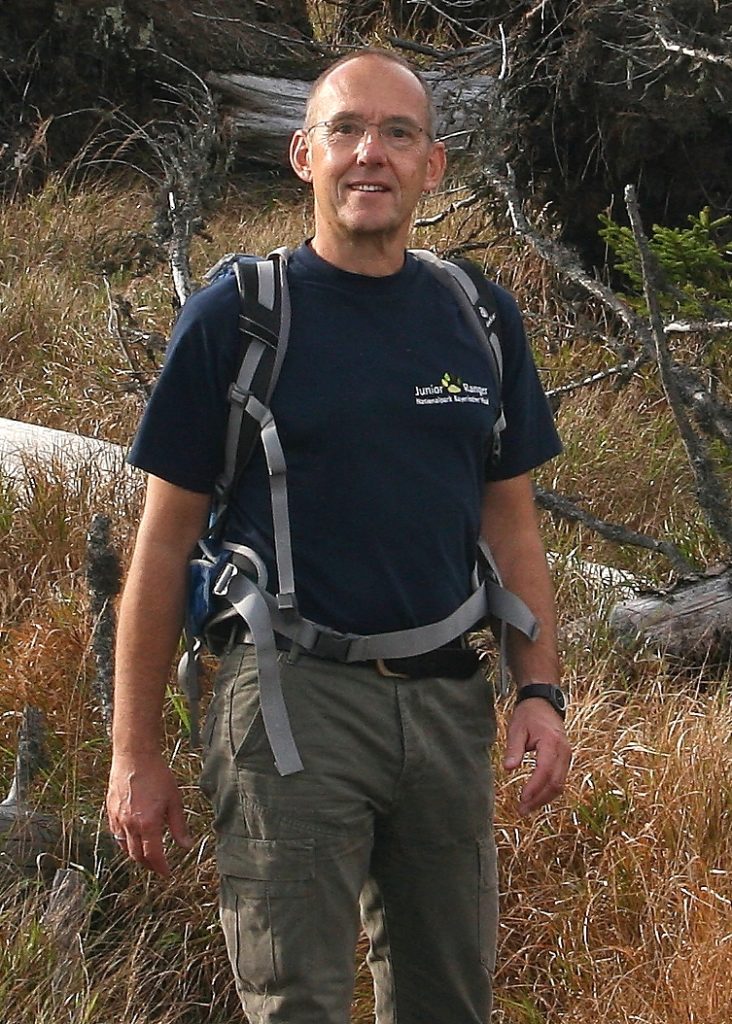
“In 2013, former IRF President Sean Wilmore gave us a push: Where are you European rangers? We need you for partnerships to support rangers in need. This twinning agreement was a very good example to start with.”
Michael Großmann, head of National Park Service in the Bavarian Forest
Over the years, with the exception of the 2020 and 2021 pandemic years, the Twinning partners have deepened their knowledge on a whole range of topics during mutual annual visits: For the Israeli rangers, Yeger cites educational programmes on sustainable development, working with communities and wildlife conflicts with farmers and graziers, among others. On the other hand, they can share extensive experiences with poachers and other environmental criminals with their German ranger colleagues.
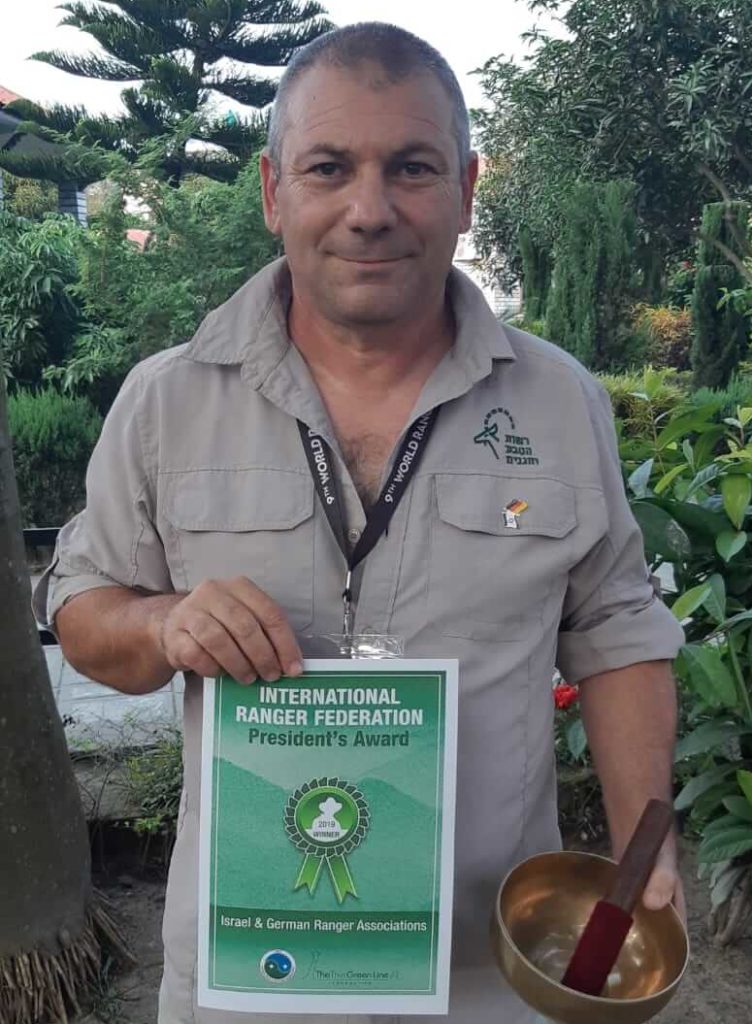
“We are so different that, in turn, we fit together. Everyone is curious to hear from the other side what they do and how they do it.”
Ilan Yeger, head of Anti Poaching Unit at Israel Nature and Parks Authority
Friendship and support strengthen for growing challenges
For Großmann, the rangers of Israel have much more to offer: “I was there in 2019. It was absolutely great to see how the rangers, who are responsible for a huge area on their own, manage their job. They are often under enormous pressure due to daily conflicts. We were very impressed by how well they manage it all and how exemplary the communication system is. We learned a lot from each other and were given a great welcome.”
In the end, the two agree, they have succeeded in what Yeger was striving for: Both partners have found a home for the rangers outside their own country. “We are friends,” says Großmann. “And we stay in touch, can call each other at any time, even if we are many kilometres apart again.”
How important this will be in the future becomes clear when the group of Israeli, Portuguese and German rangers sits on the terrace of the wilderness camp in the evening over a beer. It’s about invasive species, species extinction, the drought in both countries – as enthusiastic as some are about the huge trees and the still lush greenery in the Bavarian Forest and others about the imposing desert landscapes or vast coasts and green mountains of Israel. “The challenges are growing with the rapid developments in climate change and species extinction. We are much more successful if we tackle them together,” summarises Großmann. Yeger adds, “We work in different countries. But we have the same passion.” The regained confidence of the Israeli ranger from the beginning of this report is an impressive example of how strong this can make.
“We promote international exchange to preserve the environment for future generations”
Dietmar Attenbrunner is personally concerned about keeping nature as pristine as possible and preserving it for future generations. As board member of Sparkasse Freyung-Grafenau, he explains why the Twinning project between Israel and Germany is worth 1,000 euros to the Sparkasse.
Mr Attenbrunner, why did you decide to support the twinning programme between Israel’s and Germany’s rangers?
We have been supporting the Junior Rangers in the Bavarian Forest National Park for many years and are always invited to meetings. It is very important for young people to understand that we have to preserve the environment for posterity. This project has always been a matter of hearts for us. So it was immediately clear to us that we would also like to get involved in the adult sector, especially if it is a cross-border issue where rangers learn from each other for nature conservation.
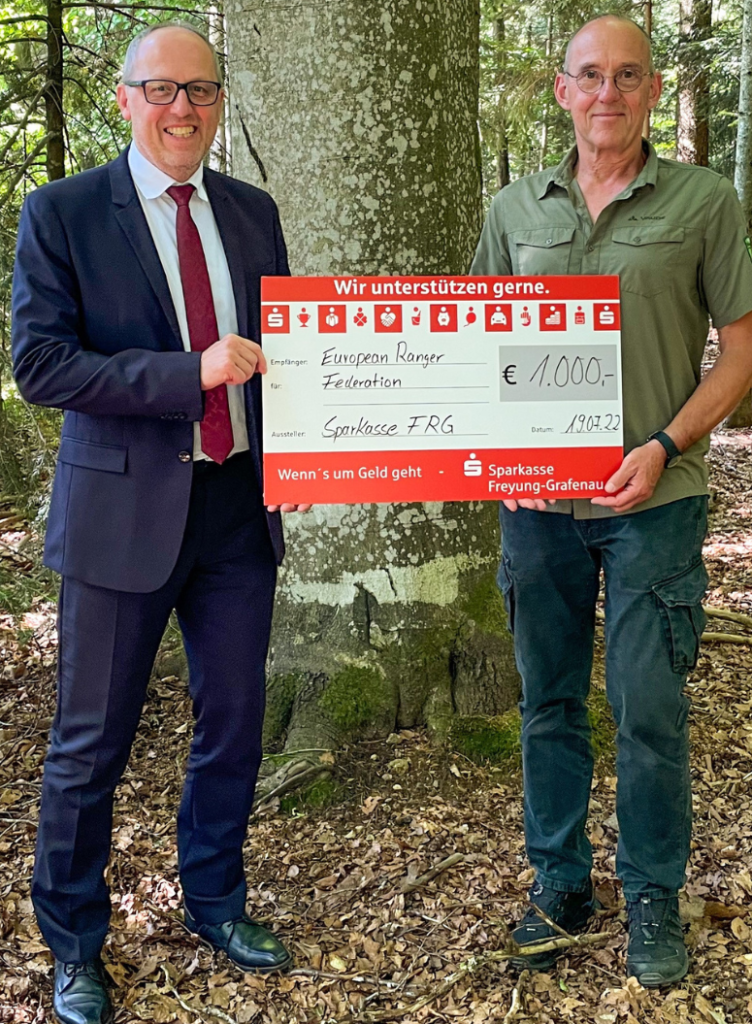
“As Sparkasse, we also have the sustainable development of our region on our agenda. It was therefore immediately clear to us that we would support Twinning.”
Dietmar Attenbrunner (left), Sparkasse Freyung-Grafenau, and Michael Großmann at the symbolic handover of the donation check
As a savings bank with a 200-year history, we not only have financial issues on our agenda, but also the further development of the region. The topic of the environment and nature is an essential part of this. That is why we are very happy to support this project. And we will continue to do so in the future.
What do you personally associate with the work of the rangers in the national park?
My wife and I were born here and are very attached to the region and its nature. We are constantly on the move on signposted hiking trails, there is a lot of beauty there. And we want our children, grandchildren and great-grandchildren to have these beautiful experiences too. The current climate and environmental developments are already difficult. In order for us humans to take the right action now, it is so important to educate people, as the rangers do here, but also all over the world.

This content is sponsored by

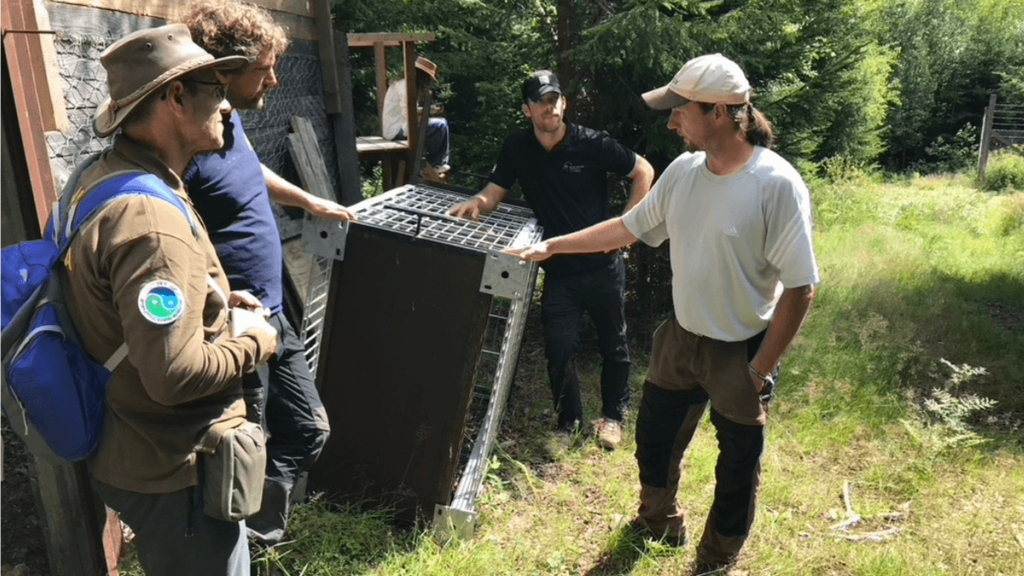
One thought on “Strong through differences: Twinning partners Israel and Germany meet again since pandemic”
Comments are closed.